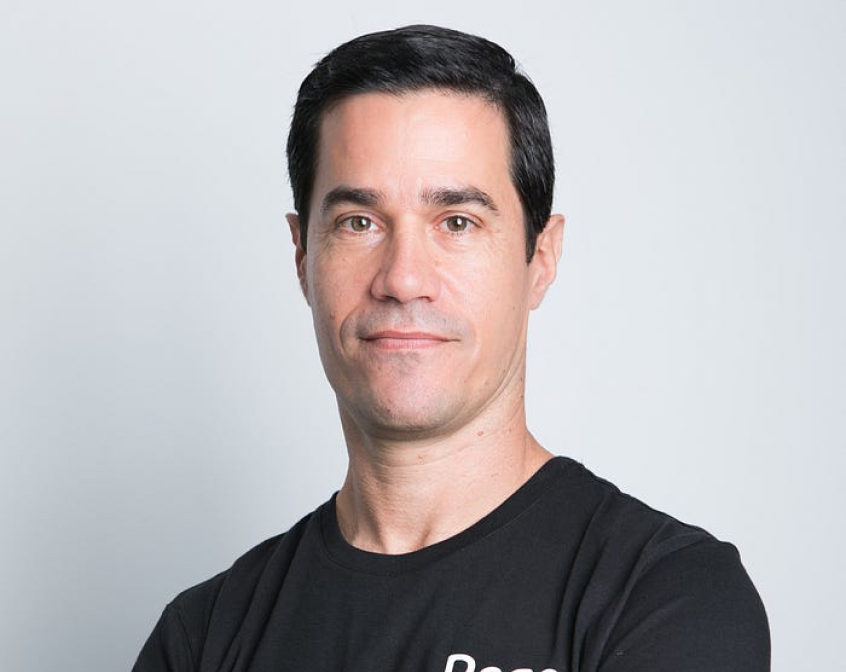Enterprise Resource Planning (ERP) is one of the largest markets in all of application software. With over $50B in annual spend on the category, ERP systems serve as the backbone of most of the world’s mid and large-sized companies and organizations across industries. Some of the world’s largest software companies including SAP, Oracle, and Microsoft have dominated the category for the last few decades. For SMB’s, however, traditional ERP systems are too complicated, expensive, time-consuming, and resource-intensive. Xentral is changing that with the first SMB-focused ERP system, creating a Shopify-like experience for back-office processes like order management, inventory and warehouse management, fulfillment, and procurement.
Continuing our interview series with leaders of innovative start ups and subject matter experts, we chat with Bene Sauter, Founder of Xentral, to discuss the process of customer education when building a company in a new category.
Interview
Bene, thank you for joining us. A great place to start our conversation today would be to give our readers some background on the space you’re building. Tell us about how you see the traditional ERP market today and about the gaps you saw that led you to start Xentral.
I’ll start by telling you our story, as it is a good example for the existing gaps in the market. Years ago, we had our own online business which grew fast, and suddenly we found ourselves in an infinite loop of repetitive processes that were prone to human mistakes. I had never spent so much time with a keyboard and mouse – just to run mundane tasks. The more the business grew, the more painful the situation got. This triggered me to search for a software solution to help us automate those manual steps. However, I could not find anything I liked on the market. Whatever was available, was not user friendly and flexible. Or, it was way too expensive for a small business like ours. What’s more, most solutions only addressed a small part of our business needs, very few offered an API that would enable me to tailor them to my business’s needs. They wanted us to tailor our business to their software, rather than the other way around. Given my software engineering background I eventually decided to write my own software, and Xentral was born in 2017.
It’s a great story and reflects the level of empathy that you have with your customers. Tell us more about Xentral today. Bring us up to speed on the company, the product portfolio, and the customers you serve.
Xentral has grown to a formidable 1,500+ customers and 200 employees across Europe and North America. Our lean ERP solution, dedicated to companies from 2 to 100 employees, covers operational business needs such as Order Management, Warehouse and Inventory Management, Supply Chain Management, and Finance & Accounting. Beyond that, we offer lots of valuable integrations especially in the ecommerce space that facilitate the import and export of orders and invoices from, and to shop systems and marketplaces, the creation of shipping labels for carriers, and payment reconciliation with many payment service providers and banks. We also offer modern integrations with accounting and tax solutions such as Quickbooks, Xero, and Datev.
It’s interesting to see how you balance depth across the different modules, plus the flexibility to address the variability of businesses in the SMB segment. One of the characteristics of the traditional ERP market is its complexity. How did you think about what to build in the first place from a product perspective. In such a big category, how did you decide where to start?
That’s a really good question, and one that many small companies struggle with. We actually looked at our own needs and started prioritizing based on impact. As such, we started with Inventory Management. Once we had created all the important modules, we realized the power of having a strong Order Management. So we continued with this and experienced the game changing potential of having a complete overview of all orders across all business channels. This prioritization alongside customer feedback was essential for us.
Another factor of the ERP market you operate in is its horizontal nature. How do you decide what sectors to focus on selling into? What are the pros and cons, and the challenges you deal with when engaging with such a diverse range of businesses?
When we started developing the software a lot of our decisions were driven by customer feedback. Businesses would find us via word of mouth. We discussed their needs and business processes, and quickly found out that the core processes are mostly identical across verticals and segments. Actual differences were minor, for example the number format a company would prefer. Hence, we ended up releasing a flexible software solution that can be widely used across many industries. One challenge that we faced was deciding which requests or issues were high priority to integrate in our product and which, important for a particular customer, were not necessarily impactful to have in the system for the broader customer base.
Tell us more about what engagement looks like with your customer base. What does the sales process look like and how does education factor into it?
Since we are selling to SMBs, we very often engage with the founders or the CEO / COO of the company. They typically know their company inside out, and very quickly recognize the value Xentral can bring to their business. The founder and CEO sometimes decide to start working with Xentral on Friday, set up it over the weekend, and go live on Monday. And once they experience the tremendous benefits, Xentral becomes mission critical to their continued success. Recognizing this virtuous cycle, we offer free trials and work on strengthening the free trial experience so potential customers can realize ROI as quickly as possible.
When you think about the various components of customer education – from creating content to educate the public about what you do, to discussing pain points in prospect conversations, all the way to servicing existing customers – how do you think about the various opportunities, benefits, and challenges around education at each stage in the customer journey?
Over the past year, we have heavily invested in our product marketing efforts. This has enabled us to get a much better understanding of the overall market and specific segments within the market. There are customer segments who are very savvy and thus are specifically looking for lean ERP solutions. However, the majority of the market is not there yet and therefore requires a lot of touch points on their customer journey. We focus on building awareness at the top of the funnel, and promote dedicated success stories in the middle of the funnel. Then we offer free trials plus online academy resources both pre and post-close. We have also ramped up our customer support to make sure we address all of our clients’ questions or concerns as quickly as possible.
What advice would you have to founders just starting out on their journey of company building in a new category that requires evangelization and education? Any mistakes that you’ve seen that founders should make sure they avoid?
As your company grows, hire seasoned managers and trust them to do their job. This is a key aspect of the CEO job, otherwise you will find yourself too busy to be able to think about strategy and how to move the company forward. Nonetheless, stay involved in all aspects of your business to learn and grow with it, and always be open to taking any question from your team, even if you don’t have an answer to it. This is not about micromanagement, but instead about leading by example and maintaining an understanding of your customers and business processes. For example, just recently I did an “internship” with our AEs and BDRs, which enabled me to learn more about their day-to-day experience at our company, engaging with customers and prospects, and the evolving needs of our customers.
To learn more about Xentral, check out their website and open jobs.
Related Articles

Building Smarter with AI: A Roundtable with UiPath’s Ed Challis
Ed Challis, Head of AI Strategy at UiPath, recently led a roundtable discussion with Crew Capital portfolio company founders and…

Fundraising, AI Advancements, and the Quest for Product Market Fit with Vasco Pedro
In the following Crew Capital interview with Dylan Reider and Sonia Damian, Vasco Pedro, the CEO and co-founder of Unbabel…

Scaling the SaaS Ladder: Subskribe CEO Durga Pandey on Navigating from Seed to Growth Stage
Coming off a breakout year for Subskribe, Crew Capital’s Dylan Reider and Sonia Damian sat down with Durga Pandey to…








